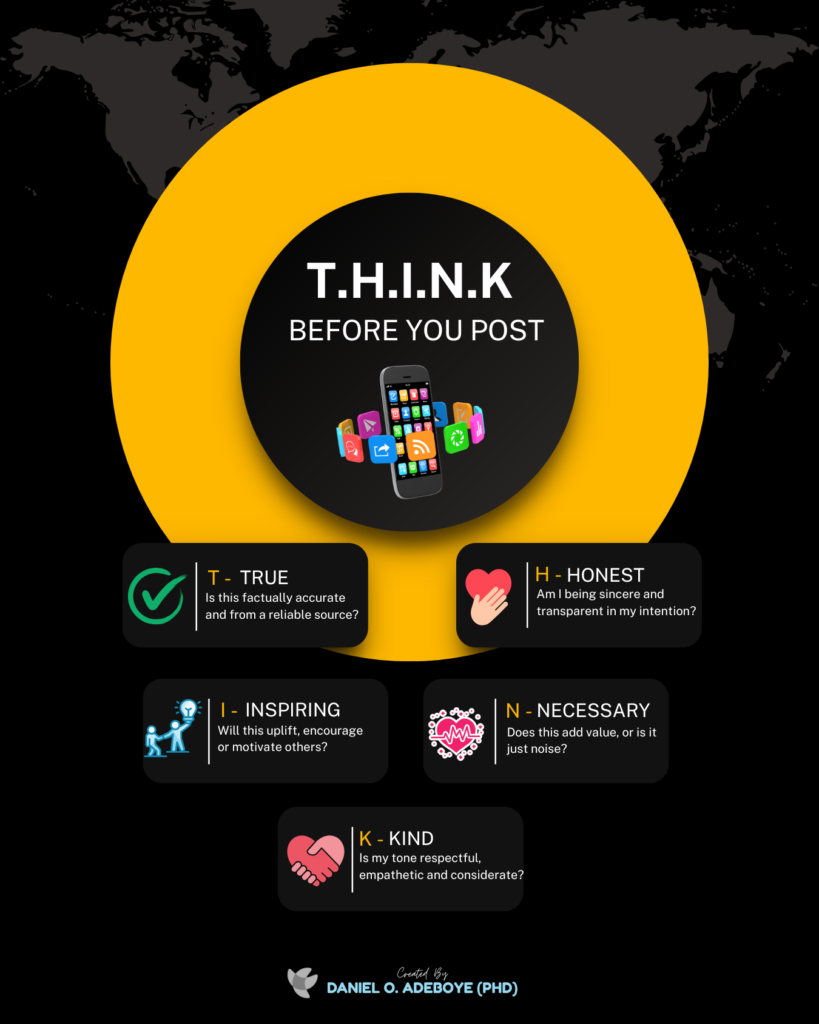A 5‑Step Guide to Responsible Posting for Students
Equip your students with a simple yet powerful tool for mindful social media use. In this post, we explore the THINK framework—True, Honest, Inspiring, Necessary, Kind—and show how a high‑contrast infographic sparks lively discussion, builds digital wisdom and prevents rash sharing. Discover practical tips to embed THINK prompts into your lessons and empower youth to post with purpose.

Context
I introduce the “THINK before you post” framework in my sessions with students and youths to encourage responsible social media use.
T – Is it True? (Is this factually accurate and from a reliable source?)
H- Is it Honest? (Am I being sincere and transparent in my intention?)
I – Is it Inspiring? (Will this uplift, encourage or motivate others?)
N – Is it Necessary? (Does this add value, or is it just noise?)
K – Is it Kind? (Is my tone respectful, empathetic and considerate?)
By asking the following questions before sharing content, participants learn to avoid impulsive or harmful posts. Embedding this checklist into digital citizenship training has consistently sparked lively discussion and helped learners develop healthier online habits.
Process
To make the concept memorable, I designed a yellow and black infographic in Canva, placing “T · H · I · N · K” prominently at the centre. Under it, I arranged each question with concise definitions, and I added a stylised smartphone graphic displaying social media icons to ground the checklist in real‑world posting scenarios. The high‑contrast palette grabs attention, while the central THINK motif reinforces that reflection is at the heart of every decision.
Outcome
When I display this visual in workshops, students immediately engage—calling out examples of posts that fail one or more THINK criteria. This leads to peer discussions about digital ethics and self‑regulation. Participants report greater awareness of their online footprint and fewer regrettable posts in the days that follow.
Moving forward, I plan to integrate similar micro‑learning visuals at key points in training presentations and course modules—such as before discussion forums or group assignments—to reinforce metacognitive checks. Embedding THINK prompts throughout the curriculum will help learners internalise responsible posting behaviours and build respectful online communities.

